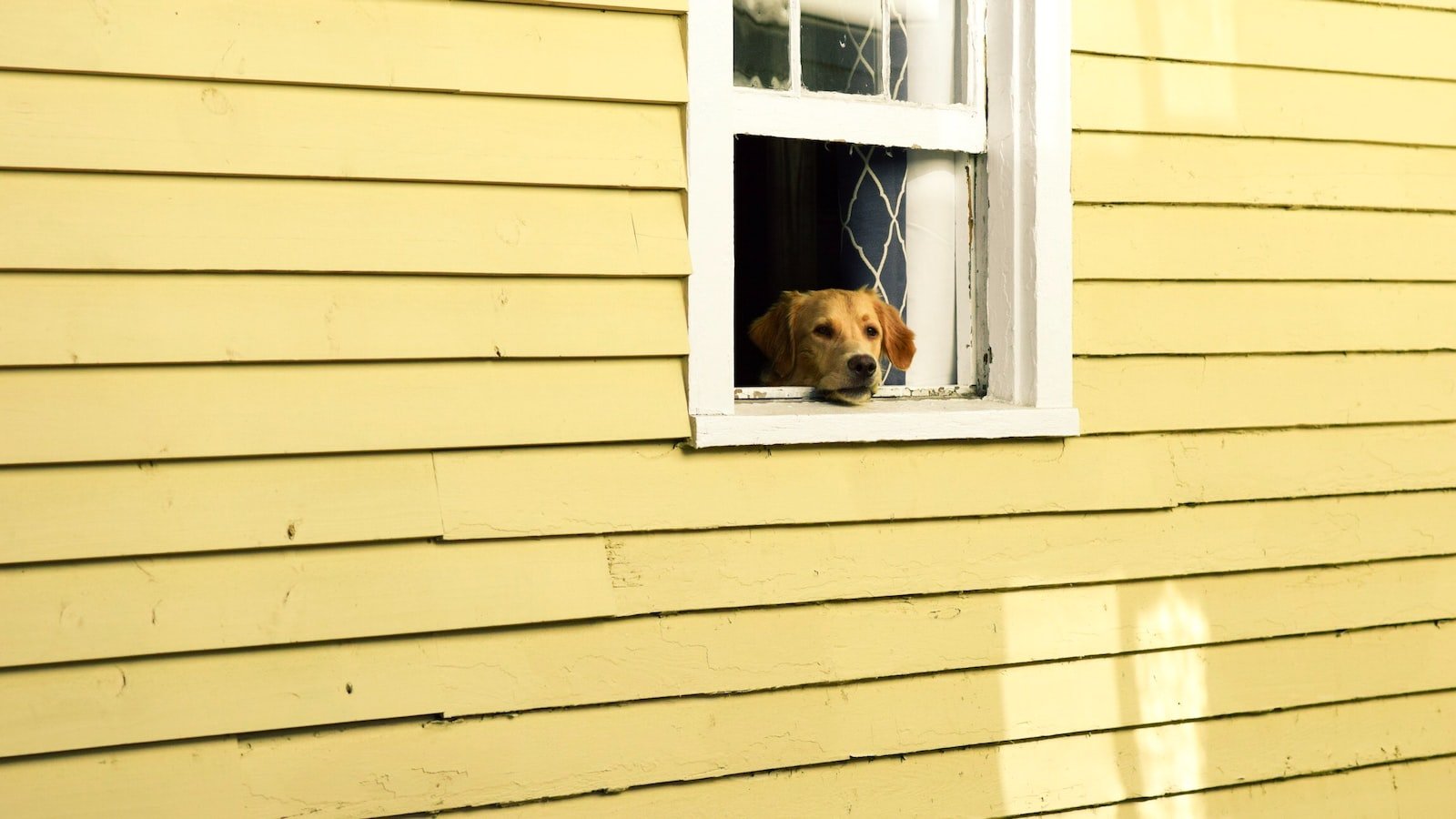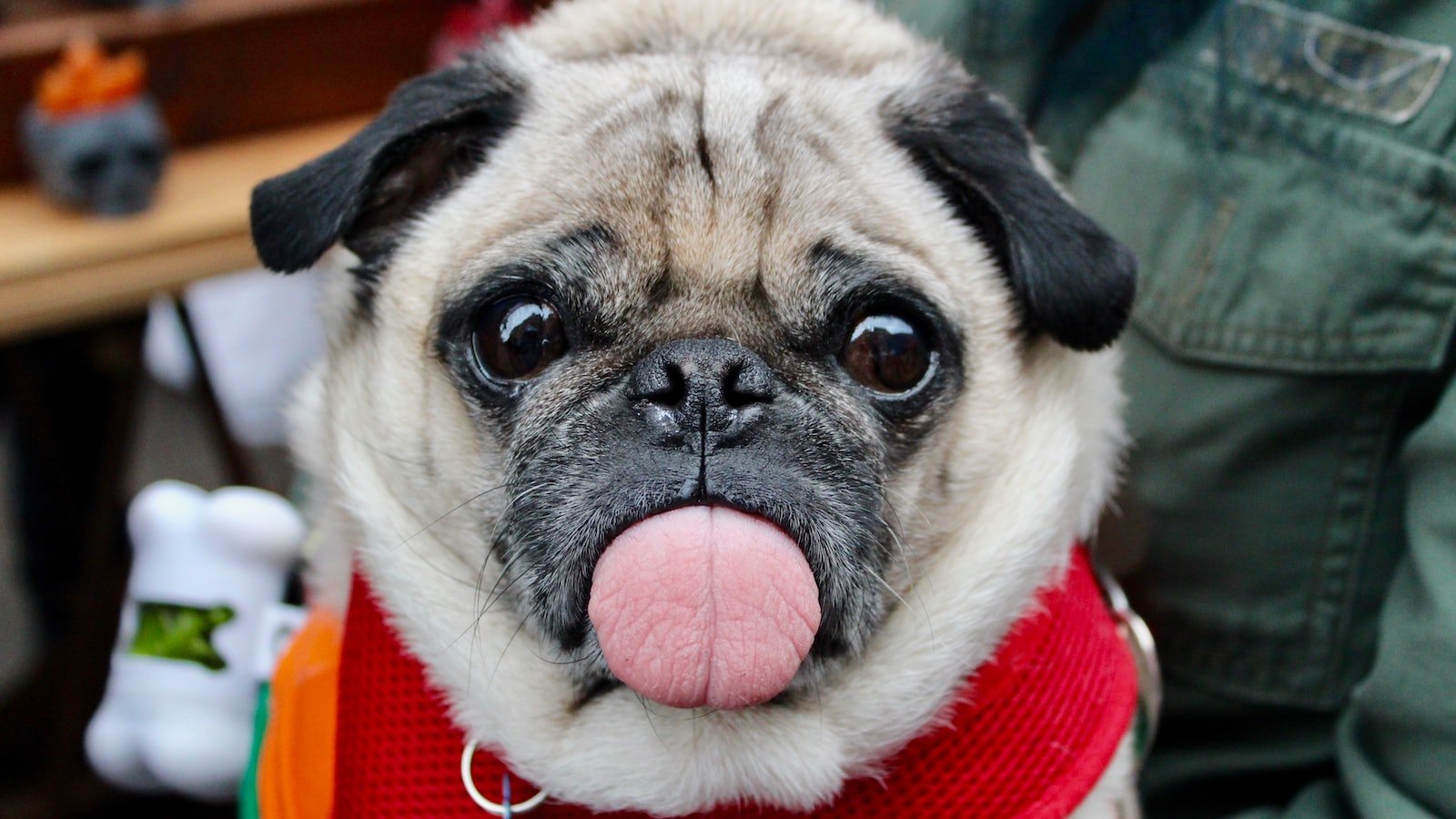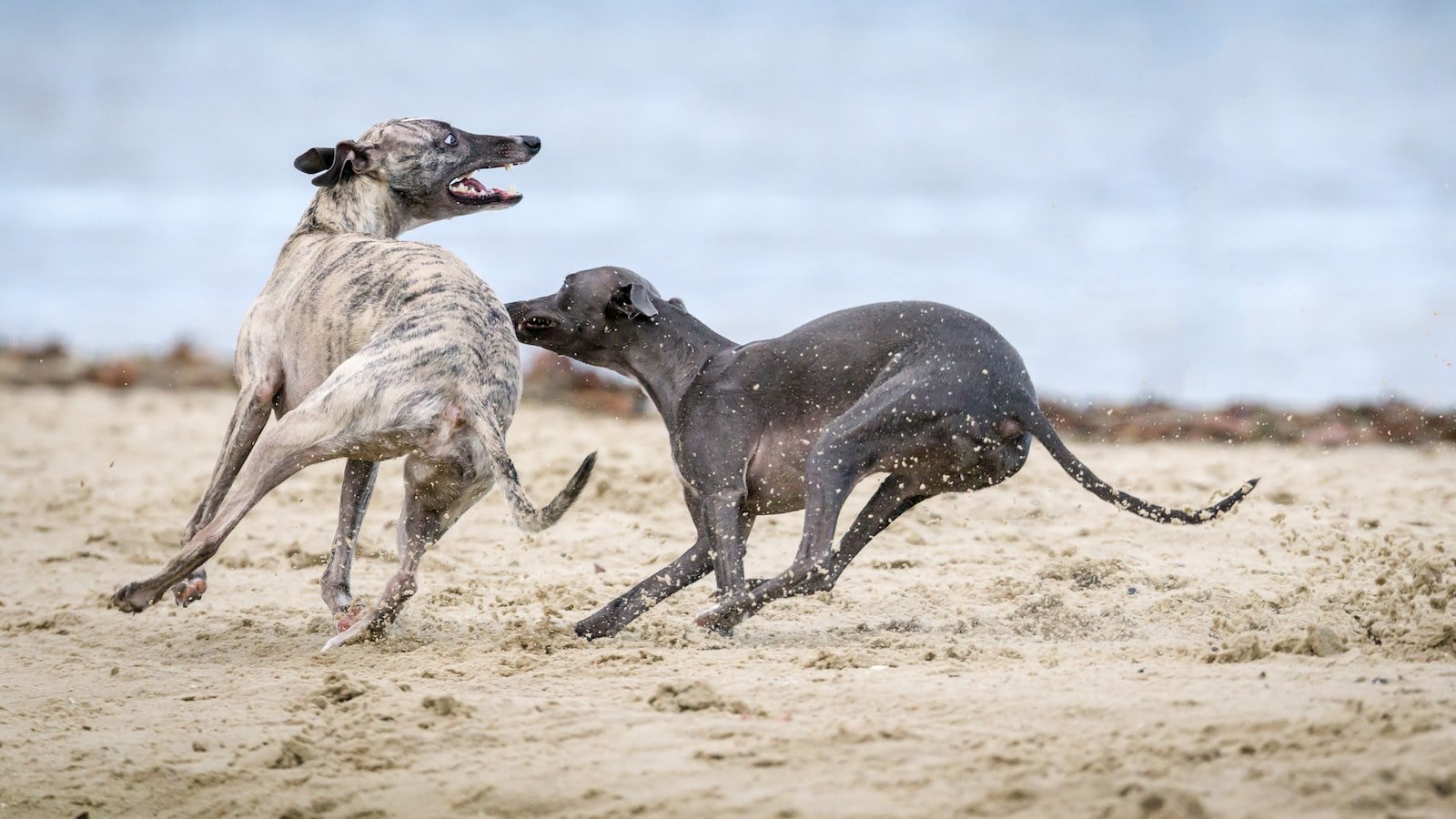From the sweeping plains of Oklahoma to the bustling streets of New York City, service dogs have become an integral part of our society. These remarkable canines, with their unwavering loyalty and remarkable skillsets, are more than just companions; they are lifelines for those who rely on them for their day-to-day needs. While their abilities to assist individuals with physical disabilities or medical conditions are widely recognized, one crucial aspect often goes unnoticed – grooming. In the realm of service dog training, grooming plays a pivotal role in maintaining not only their physical well-being but also their mental and emotional health. In our quest to unravel the mysteries behind these exceptional animals, it is imperative that we recognize the importance of grooming in service dog training. Let us delve into the fascinating world that lies beneath their immaculate coats and discover how proper maintenance guarantees their effectiveness in providing assistance to those who need it the most.
Table of Contents
- Understanding the Impact of Grooming on Service Dog Training
- Nurturing the Bond: Grooming as a Tool for Communication in Service Dog Training
- Maintaining Optimal Health and Hygiene: Grooming Techniques for Service Dogs
- Beyond Aesthetics: Grooming Practices for Overall Wellness in Service Dog Training
- Enhancing Training Efficiency: Expert Recommendations on Grooming for Service Dogs
- Q&A
- Closing Remarks

Understanding the Impact of Grooming on Service Dog Training
Grooming plays a crucial role in the overall effectiveness of service dog training. It goes beyond mere aesthetics and addresses the physical and mental well-being of these furry heroes. Proper grooming not only enhances their appearances but also ensures their comfort and ability to perform their important tasks with ease. Let’s delve into some key aspects of grooming and its impact on service dog training:
- Maintaining a Healthy Coat: Regular brushing, bathing, and trimming of the service dog’s coat not only keeps them clean and tidy but also helps prevent matting, skin infections, and discomfort. A well-groomed coat allows for better heat regulation, which is essential for service dogs constantly on the move.
- Building Trust and Bonding: Grooming sessions provide invaluable opportunities for service dogs to develop trust and bond with their handlers. It is during these grooming rituals that dogs learn to remain calm, patient, and cooperative. The intimate nature of grooming cultivates a deeper connection, improving their ability to work as a team.
- Maintaining Good Hygiene: Keeping a service dog clean and free from odors is crucial, especially when they are in public places. Regular grooming helps manage any shedding or dander and minimizes the risk of allergies in both the dogs and their handlers. Maintaining good hygiene promotes a professional image and opens more doors for service dog access.
highlights the essential role it plays in their well-rounded development. It not only ensures the physical comfort and hygiene of these remarkable animals but also strengthens the bond between them and their handlers. By prioritizing proper grooming practices, we can further support these incredible service dogs in all their life-changing endeavors.

Nurturing the Bond: Grooming as a Tool for Communication in Service Dog Training
Grooming plays a vital role in fostering a strong and effective bond between a service dog and its handler. Beyond simply maintaining the dog’s physical appearance, grooming serves as a powerful tool for communication and connection. Through the act of grooming, the handler establishes trust, strengthens the dog’s responsiveness, and reinforces the bond between them.
- Trust-building: Regular grooming sessions provide an opportunity for the handler to establish trust with the service dog. As the dog becomes accustomed to being handled and cared for, it learns to trust its handler’s touch and presence. This trust is essential for the dog to confidently perform its duties and remain focused, even in challenging situations.
- Enhancing responsiveness: Grooming sessions offer a unique chance for the handler to reinforce the dog’s responsiveness to commands. By incorporating training cues within grooming activities, such as “stand,” “stay,” or “paw,” the handler strengthens the dog’s obedience skills while simultaneously fulfilling grooming tasks.
- Bond reinforcement: The physical contact and mutual attention involved in grooming contribute to the deepening of the emotional bond between the service dog and its handler. Regular grooming sessions provide dedicated time for both parties to connect on a more intimate level, promoting a sense of closeness and understanding.
In service dog training, grooming is much more than a superficial task. It serves as a powerful means of communication, fostering trust, enhancing responsiveness, and reinforcing the unbreakable bond between a service dog and its handler.

Maintaining Optimal Health and Hygiene: Grooming Techniques for Service Dogs
Grooming Techniques for Service Dogs
Ensuring optimal health and hygiene is crucial when it comes to caring for service dogs. These incredible animals work tirelessly to assist their handlers, so it is essential to keep them clean and well-groomed. Here are a few techniques to help maintain their well-being:
- Regular Brushing: Service dogs often have thick or long coats, which can easily become tangled or matted. Regular brushing helps keep their fur clean and free from debris. Additionally, it stimulates blood circulation and distributes natural oils for a healthier coat.
- Proper Nail Care: Trimming a service dog’s nails is extremely important. Overgrown nails can cause discomfort and lead to gait issues. Regular trimming prevents painful paw injuries and promotes good posture during their critical tasks.
- Ear Cleaning: Service dogs use their acute hearing capabilities to assist their handlers. Regularly cleaning their ears helps prevent infections and maintains optimal hearing. Gentle wipes or specialized ear cleaning solutions can be used to keep their ears clean and free from dirt and moisture.
- Bathing Routine: Bathing is an essential part of grooming that helps remove dirt, bacteria, and odors from a service dog’s coat. It is important to use dog-specific shampoos that are gentle on their skin. Avoid over-bathing, as excessive bathing can strip their coat of natural oils, leading to dryness and itchiness.
Remember, maintaining optimal health and hygiene for service dogs is not only crucial for their well-being, but it also ensures they can perform their duties to the best of their abilities. By following these grooming techniques, you can provide the care and attention these remarkable animals deserve.

Beyond Aesthetics: Grooming Practices for Overall Wellness in Service Dog Training
Grooming is not just about looking good; it plays a crucial role in the overall wellness and training of service dogs. By prioritizing their grooming practices, we can ensure that these exceptional animals are comfortable, healthy, and ready to fulfill their important tasks.
One essential grooming practice for service dogs is regular coat brushing. This not only keeps their fur clean and free from tangles but also helps distribute natural oils, promoting healthy skin. For dogs with longer coats, a slicker brush can be used to remove loose hair and prevent matting. Additionally, using a comb with wide teeth will help to detangle any knots and ensure a smooth, gorgeous coat. It is important to be gentle and patient during the brushing process to avoid causing any discomfort to the dog.
Another crucial aspect of grooming for overall wellness is nail trimming. Overgrown nails can lead to discomfort and even affect a dog’s gait, which can impede their performance during training and daily tasks. Regular nail trims help prevent injury and promote proper foot health. It is recommended to use a specialized nail clipper for dogs and trim their nails gradually, avoiding the quick, which is the sensitive part of the nail. If you are uncertain about trimming their nails, consider seeking assistance from a professional groomer or veterinarian.
- Regular coat brushing: Keeps the fur clean, prevents matting, and promotes healthy skin. Use a slicker brush for removing loose hair and a wide-toothed comb for detangling.
- Nail trimming: Prevents discomfort and injury, maintains proper foot health, and ensures optimal performance during training and daily tasks. Use a specialized nail clipper for dogs and trim gradually, avoiding the sensitive quick.
Enhancing Training Efficiency: Expert Recommendations on Grooming for Service Dogs
Grooming plays a crucial role in the overall well-being and functionality of service dogs. Proper grooming not only increases their comfort and hygiene, but it also significantly enhances their training efficiency. We spoke with renowned experts in the field to gather their top grooming recommendations to maximize the potential of these incredible canines.
Grooming Tools:
- Slicker Brush: Invest in a high-quality slicker brush to effectively remove tangles, mats, and loose hair. Regular brushing not only prevents discomfort but also strengthens the bond between the dog and trainer.
- Nail Clippers: Keep your service dog’s nails trimmed to an appropriate length to prevent discomfort and minimize the risk of injury. Use specially designed dog nail clippers, ensuring proper technique and caution to avoid cutting the quick.
- Toothbrush and Toothpaste: Maintaining good oral hygiene is essential for service dogs. Regular brushing with a dog-friendly toothbrush and toothpaste prevents dental issues and helps maintain their overall health.
Recommended Grooming Practices:
- Bathing: Use a gentle dog shampoo to bathe your furry friend regularly. This not only keeps their coat clean but also aids in preventing skin irritations and infections.
- Eyes and Ears: Regularly check and clean your service dog’s eyes and ears to prevent infections. Use veterinarian-approved products and techniques to maintain their hygiene without causing discomfort.
- Paw Care: Trim the hair around their paws to prevent matting and keep them clean. Additionally, ensure their paw pads are free from debris, cracks, or excessive dryness by applying pet-safe balms or moisturizers.
By following these expert recommendations, you can ensure that grooming becomes an integral part of your service dog’s training routine. A well-groomed service dog will not only perform at their best, but they will also remain healthy and happy throughout their important endeavors.
Q&A
Why is grooming important in service dog training?
Grooming is crucial in service dog training as it not only promotes the dog’s overall health and hygiene but also enhances their appearance and confidence. Regular grooming sessions allow trainers to closely examine the dog’s body, ensuring any potential health issues are detected early on.
What are the benefits of proper grooming in service dogs?
Proper grooming in service dogs not only keeps them clean and fresh but also prevents skin irritations, matting, and excessive shedding. Additionally, grooming sessions provide an opportunity for bonding between the dog and their trainer, strengthening the trust and communication in their relationship.
How often should service dogs be groomed?
The frequency of grooming sessions for service dogs depends on their breed, coat type, and individual needs. In general, most service dogs benefit from regular brushing, nail trimming, ear cleaning, and bathing at least once every four to eight weeks.
What role does grooming play in a service dog’s behavior?
Grooming plays a significant role in a service dog’s behavior as it helps to maintain their comfort and overall well-being. A well-groomed dog is less likely to experience discomfort or distractions due to matted fur, overgrown nails, or ear infections, allowing them to stay focused on their tasks.
Can a service dog’s grooming routine be adapted for an individual’s specific needs?
Absolutely! A service dog’s grooming routine can be tailored to cater to an individual’s specific needs. For example, individuals with allergies might require more frequent bathing to minimize allergens, while those with mobility issues may need assistance in brushing and nail trimming activities.
What are some grooming tips for service dog owners?
Service dog owners should prioritize regular brushing to prevent mats and tangles, keep their dog’s nails trimmed to a safe length, clean their ears to avoid infections, and brush their teeth regularly for oral hygiene. Additionally, consulting with a professional groomer can provide valuable advice on specific grooming techniques and best practices.
Closing Remarks
In the realm of service dog training, the notion of grooming is often overlooked, an elusive concept woven between the lines of an extensive curriculum. However, the importance of grooming in this field cannot be disregarded or underestimated. Just like a symphony relies on every instrument playing in perfect harmony, grooming ensures a service dog is primed and ready to perform their noble duties. From appearance to hygiene, grooming goes beyond mere aesthetics, becoming an integral part of their training journey.
When we speak of grooming, one may envision a flurry of brushes, clippers, and delightful scented shampoos. While these tools hold their own significance, grooming encompasses more than just superficial tidiness. It is a holistic approach that includes maintaining the overall welfare of these remarkable creatures, enhancing their physical health, emotional well-being, and overall comfort.
Manifesting itself in different forms, grooming acts as a bridge between the physical and emotional aspects of a service dog. Regular brushing, for instance, not only keeps their coat lustrous but also deepens the bond between dog and handler. The rhythmic strokes of a brush, gentle whispers of care, and loving touches create an atmosphere of trust, a tranquil haven where confidence blossoms and unconditional companionship flourishes.
Grooming transcends the boundaries of appearances; it becomes a testament to a service dog’s discipline, their unwavering commitment to serve. When a dog’s nails are meticulously trimmed, their coat expertly manicured, and their ears checked and cleaned regularly, we witness a dog who respects the importance of presentation and takes it upon themselves to represent their role with dignity and poise.
But let us not forget the intrinsic value grooming holds in maintaining a healthy and thriving service dog. By diligently maintaining their hygiene, we safeguard them from the perils of skin irritations, infections, and discomfort. In a world where we rely on these noble beings to be our guiding lights, navigating us through everyday challenges, it is our duty to ensure their physical well-being remains flawless.
Ultimately, grooming encompasses a blend of artistry, care, and devotion. It allows us to appreciate the indomitable spirit of a service dog, the grace with which they carry out their duties, and the bond they share with their handlers. So, as we gently bid farewell to this exploration of the importance of grooming in service dog training, let us be reminded that their appearance is not merely a reflection of their outer beauty, but of the profound connection we forge with these superheroes in fur.
As an affiliate, my content may feature links to products I personally use and recommend. By taking action, like subscribing or making a purchase, you’ll be supporting my work and fueling my taco cravings at the same time. Win-win, right?
Want to read more? Check out our Affiliate Disclosure page.